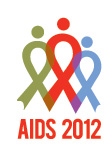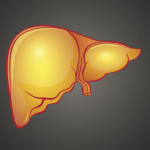 Could daily aspirin help reduce the excessive risk of a heart attack and other health complications associated with blood clots, immune activation and inflammation in people living with HIV? A small pilot study reported Thursday, July 26, at the XIX International AIDS Conference in Washington, DC, by New York University (NYU) researchers points to the possibility.
Could daily aspirin help reduce the excessive risk of a heart attack and other health complications associated with blood clots, immune activation and inflammation in people living with HIV? A small pilot study reported Thursday, July 26, at the XIX International AIDS Conference in Washington, DC, by New York University (NYU) researchers points to the possibility.
Aspirin’s effect on heart health is well understood. Most heart attacks begin when a cholesterol plaque causes the wall of an artery to tear, which results in platelets rushing to the area so they can clot the blood. If too many platelets accumulate, the tiny cells can block the blood vessel and cut off oxygen needed to keep the heart working properly.
Aspirin—even at very low doses—can inhibit this platelet formation. It may also help minimize the immune activation and inflammation that can lead to the weakening of blood vessel walls in response to cholesterol plaque buildup, potentially reducing the risk of artery ruptures.
In light of its low risk and low cost—compounded by the fact that it has been shown to reduce the risk of life-threatening heart attacks in HIV-negative individuals with cardiovascular disease—Meagan O’Brien, MD, of NYU and her colleagues set out to evaluate the effects of aspirin in 25 people living with HIV, all of whom were receiving antiretroviral therapy. They took a low dose of the over-the-counter drug (81 milligrams) for a week and were compared with 44 HIV-negative controls.
The researchers showed that aspirin affected patients’ platelet aggregation—the tendency to clump together in the blood.
Before aspirin was given in the study, platelet aggregation was 7.5 percent higher among those living with HIV compared with control patients. “HIV-infected subjects on antiretroviral therapy have hyper-reactive platelets,” O’Brien said.
During the study, the researchers collected blood samples from the volunteers and used two chemicals—adenosine diphosphate (ADP) and arachidonic acid (AA)—to encourage platelets to clump. Before aspirin was administered, platelet aggregation averaged 59.3 percent in response to ADP and 54.9 percent in response to AA in the HIV-positive study subjects. After one day of aspirin, aggregation in response to ADP and AA decreased to 32.2 percent and 9.1 percent, respectively. After one week of aspirin therapy, platelet aggregation decreased to 28.4 percent in samples exposed to ADP. In samples exposed to AA, platelet aggregation among the HIV-positive volunteers remained below 10 percent, but it was still significantly higher than the aggregation result seen in the 44 study volunteers not infected with HIV.
O’Brien and her colleagues also found that daily aspirin decreased markers of immune activation and three important markers of inflammation: C-reactive protein (CRP), interleukin-6 (IL-6) and D-dimer. Though the decreases in CD4 and CD8 cell activation were statistically significant, the decreases in CRP, IL-6 and D-dimer were not.
Though the study was too short and too small to determine if aspirin reduced the risk of heart attacks or other inflammation-related health problems—including cancer—the data are encouraging. Additional research, including large placebo-controlled clinical trials, will be needed to determine whether the benefits of low-dose aspirin therapy outweigh its potential risks—gastrointestinal bleeding is a risk associated with chronic aspirin therapy—in people living with HIV.
Advertisement
Advertisement
Advertisement






1 Comment
1 Comment